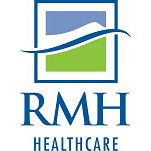
Heat stroke is a condition that develops rapidly and requires immediate medical treatment. The elderly, infants, persons on certain types of medications and those who work outdoors are most susceptible to heat stroke.
“Our bodies produce internal heat and we normally cool ourselves by sweating and radiating heat through the skin,” said Tomer Feldman, MD, Emergency Department. “However, in certain circumstances, such as extreme heat, high humidity or vigorous activity in the sun, this cooling system may begin to fail, allowing heat to build up to dangerous levels.”
Common symptoms of heat stroke include headache; dizziness; disorientation, agitation or confusion; sluggishness or fatigue; seizure; hot, dry skin that is flushed but not sweaty; a high body temperature; loss of consciousness; rapid heartbeat; or hallucinations.
“The symptoms of a heat stroke may resemble other medical conditions or problems,” Dr. Feldman said. “Always consult your physician for a diagnosis.”
It is important for the person to be treated immediately, as heat stroke can cause permanent damage or death, Dr. Feldman said. However, there are some immediate first-aid measures you can take while waiting for help to arrive:
- Get the person indoors.
- Remove clothing and gently apply cool water to the skin. Fan to stimulate sweating
- Apply ice packs to the groin and armpits.
- Have the person lie down in a cool area with their feet slightly elevated.
Take the following precautions to help prevent the adverse effects of heat stroke:
- Drink plenty of fluids—especially water and sports drinks—during outdoor activities. Avoid caffeinated tea, coffee, soda, and alcohol, which can lead to dehydration.
- Wear lightweight, loose-fitting clothing in light colors.
- Schedule vigorous activity and sports for cooler times of the day.
- Protect yourself from the sun by wearing a hat and sunglasses.
- During outdoor activities, take frequent drink breaks and mist yourself with a spray bottle to avoid becoming overheated.
- Try to spend as much time indoors as possible on very hot and humid days.
The Valley Program for Aging (VPA) monitors seniors, homebound and low-income individuals at risk of heat stroke through its Meals on Wheels program, and can facilitate an application to the Department of Social Services Cooling Assistance Program, said VPA director Cathie Galvin. If necessary, the Department of Social Services may make provisions for immediate assistance for those who qualify, Galvin said.
For more information, contact Carolyn Harlow at the Harrisonburg-Rockingham Department of Social Services, 540.574.5145. The Cooling Assistance Program runs June 15-Aug. 15.










